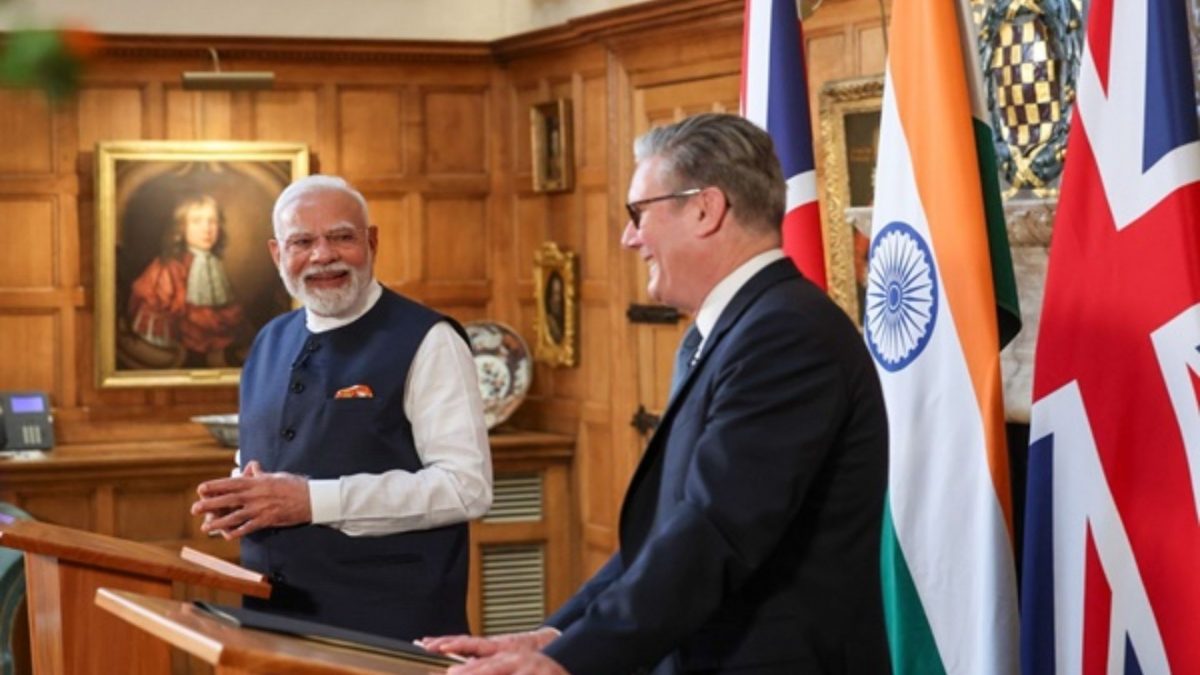Prime Minister Narendra Modi and his British counterpart, Keir Starmer, held comprehensive talks in Mumbai on Thursday, focusing on accelerating India-UK cooperation across crucial sectors including trade, defence, security, and critical technologies.
The meeting followed the arrival of UK PM Starmer on Wednesday with a significant 125-member delegation of leading British business, education, and entrepreneurial figures for his two-day visit.
A ’launchpad’ for future growth
The visit comes just two and a half months after the two nations sealed a landmark Free Trade Agreement (FTA) in London during PM Modi’s July visit. Starmer was highly optimistic about the pact, which aims to reduce tariffs and double bilateral trade by 2030.
Addressing the media, Starmer called the FTA a “launchpad for growth,” noting the rapid economic rise of India.
“We signed a major trade deal with India in July… but the story doesn’t stop there,” he stated. Highlighting India’s projection to become the world’s third-largest economy by 2028, Starmer stressed that the opportunities resulting from quicker and cheaper trade are “unparalleled.”
In a separate press conference, PM Modi echoed these sentiments, calling India and the UK “natural partners” whose collaboration is key to bringing stability to the volatile global landscape.
Union Minister of Commerce and Industry Piyush Goyal reinforced the commitment, calling the signing of new Terms of Reference to reposition the Joint Economic and Trade Committee (JETCO), an “institutional reset” designed to strengthen strategic engagement and drive the FTA’s implementation on X.
Impact Shorts
More ShortsA major outcome of the discussions was the expansion of educational ties. PM Modi noted the large education delegation accompanying Starmer and announced that nine UK universities are set to open campuses in India.
In line with the Vision 2035 roadmap—a ten-year blueprint covering cooperation in trade, climate, education, and technology—India was also expected to press its concerns regarding the activities of pro-Khalistan groups operating from the UK.
Additionally, India is keen to push for the extradition of wanted fugitives, including Vijay Mallya and Nirav Modi.
Starmer , who took leadership of the Labour Party in 2020, has actively sought to reset the bilateral relationship following prior tensions over issues like Kashmir.
Both the FTA and the Vision 2035 framework are viewed as key steps in addressing long-standing security concerns, particularly concerning Khalistani separatist activity against Indian personnel in the UK.
)